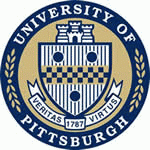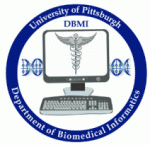Great Lakes Bioinformatics Conference 2013
Education Session - Wednesday, May 15, 2013
3:45pm – 5:30pm
Location: Connan
Educating Biologists and Bioinformatics Professionals for the Future - Are We Getting It Right?
Panel Co-Chairs: Guenter Tusch, Grand Valley State U, and Sarah Elgin,Washington U in St. Louis
Panelists:
- Lonnie Welch, Ohio University, Vice Chair ISCB Education Committee
- Sarah Elgin, Washington University in St. Louis, and Genomics Education Partnershipnformatics Core, CCMB
- Panayiotis (Takis) Benos, University of Pittsburgh, Joint Carnegie Mellon – U Pittsburgh Computational Biology Graduate Program
- Regina Lamendella, Juniata College
- Shawn Stricklin, Monsanto
Panel description: The panel will explore the state of the art of bioinformatics curriculum efforts in the Great Lakes Region and on a national and international level by looking at different content areas from an undergraduate and graduate perspective, as well as current skill requirements in research and industry.
While bioinformatics education has not received much attention at the GLBIO and OCCBIO conferences during the last few years, the RECOMB Satellite Conference on Bioinformatics Education has intensified the discussion about the importance of bioinformatics education for undergraduate biology students. Russ Altman asked in his 1998 editorial an obvious question: ‘What is the proper curriculum for bioinformatics professionals?’ He warns that we must be careful not to define ‘curriculum’ narrowly as a list of required courses, but also consider career counseling, exposure to the culture of the discipline, and access to quality research projects to build enthusiasm and skills. The Curriculum Task Force of the ISCB Education Committee organized a ‘Birds of a Feather ‘(BoF) session at ISMB 2012 to discuss bioinformatics curriculum guidelines. In this open forum the participants considered curricular implications of the task force’s surveys of career opportunities, hiring practices of bioinformatics core facility directors, and existing curricula. We need to continue this dialogue.
The purpose of this panel is to extend the ongoing discussion started by the Curriculum Task Force of the ISCB Education Committee and to explore the state of the art of bioinformatics curriculum efforts by considering different approaches at the undergraduate and graduate level. In particular, we will discuss the skills and understandings needed for a student to progress from an undergraduate to a graduate program, and to prepare for employment in research and/or industry. At the undergraduate level the need to develop specific bioinformatics courses, and to encourage biology majors to take course work in statistics and computer science, will be addressed. Other questions to consider are the use software in classroom and lab, the balance of methodological and applied elements in a graduate/undergraduate curriculum, how to incorporate soft skills (such as working in teams) and the culture of bioinformatics, and the need for continuing education.






